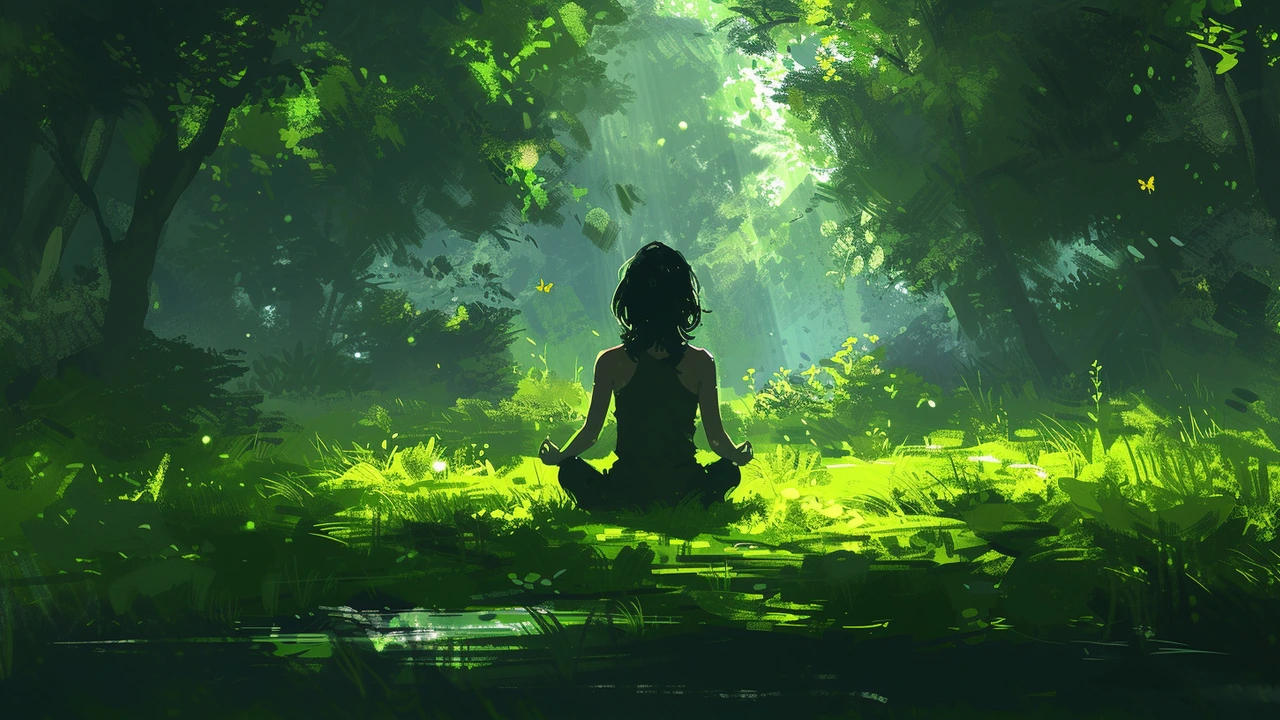Uncovering the Importance of Relaxation
Let me put it out there – relaxation is not just for sleepy Sundays with Beagle Bonny by my side, or when Parrot Wiggles makes a particularly amusing spectacle of himself. It is not a luxury that we can afford to skip. No siree! Relaxation is a crucial component for our health, and it doesn't need to be a mammoth task. Contrary to popular belief, unwinding doesn't always imply lying flat on your back doing nothing. It’s more about balancing the hustle-bustle of our busy lives and calming our internal chatters.
Honestly, I was late to the relaxation party, always believing I thrived in constant action. But over the years, chronic stress levels sent me scurrying for ways to maintain a balanced life. I realized that the path to optimum health had "Relaxation Station" as a significant pitstop. And it’s not a station one should skip unless inviting unnecessary health complications is on your agenda, which, let’s face it, would be bonkers!
Obstacle Du Jour: Stress and Its Cohorts
Before we delve into relaxation techniques, a basic understanding of its nemesis, stress, is vital. Stress is the body's reaction to any change that requires an adjustment or response. The body's defense system - the sympathetic nervous system - gets wound up with the consistent demands of modern life. It’s as if we are always on "fight or flight" mode, unable to switch off. And let's not forget its cohorts, anxiety and depression, who would very gleefully wreak havoc on our wellbeing.
Continuous exposure to stress lowers our immunity, making us vulnerable to a host of diseases. Heart conditions, diabetes, high blood pressure, mental health issues - stress is pretty generous when it comes to gifting ailments. Let's not rush to pop stress relief pills, though. Relaxation techniques are more capable and natural alternatives, enabling us to live with greater ease, health, and joy.
Find Your Zen: Meditation and Mindfulness
Embarking on the journey to relaxation, we encounter meditation and mindfulness first. These sisters of serenity focus on calming the mind and reducing cluttered thought processes. Studies have proven that these practices can reduce blood pressure, improve immune function, decrease stress, and—drumroll—control anxiety.
Even on my most frantic days, setting aside time for mindfulness has proven beneficial. Focusing on the present directs attention away from the unhelpful ruminations of past or future worries—keeping a journal, taking mindful walks, or simply savoring my coffee in the morning; small changes make a significant impact. And I promise you, Bonny and Wiggles have never been happier with my newfound tranquility!
Breathe In, Breathe Out: Deep Breathing Techniques
While we breathe all the time, deep and conscious breathing is rather underutilized. Deliberate deep breathing stimulates our parasympathetic nervous system, which reduces heart rate and blood pressure. It's also a wonderful ally for those times when anxiety tries to throw a party without our permission.
Breathe in for four counts, hold for four, exhale for four, and hold for four. This 'Box breathing' technique has been my go-to during stressful events. Its simplicity and effectiveness make it a handy tool for anxiety management.
The Power of Yoga and Tai Chi
Submerging further in the relaxation sea, you'll find Yoga and Tai Chi eagerly waiting. These ancient practices integrate breathing, physical postures, and meditative focus, providing a holistic approach to relaxation. Evidence shows that regular practice safeguards our health by reducing blood pressure, aiding cardiovascular health, boosting mood, and improving our overall quality of life.
I found a bonus in practicing these techniques - improved body awareness and grace. Honestly, it made me feel like a swan, at least until Bonny dashed past, turning everything into chaos!
Beating the Pressure: Progressive Muscle Relaxation
Progressive Muscle Relaxation (PMR) is a technique where you tense and then release different muscle groups. Supposedly, by focusing on the difference between tension and relaxation, you become more aware of physical sensations.
I practiced PMR one day when I was sitting at my computer, experiencing a terrible headache. After consciously tensing and relaxing my muscles, the headache was significantly reduced. And believe me, without that irritating pain, typing away was much more enjoyable!
Journey to Lala land: Sleep Techniques
We’re wrapping up the relaxation tour with a biggie – sleep. Sleep and relaxation are intrinsically linked. A good night’s sleep commands its respect not only by revitalizing our bodies but also by regulating essential hormones, strengthening our immune function, and improving heart health.
A regimen of turning off electronic devices an hour before bed, avoiding food and caffeinated drinks closer to bedtime, and maintaining a consistent sleep schedule worked wonders for my insomnia. I then learnt about the 4-7-8 sleeping technique which further enhanced the quality of my sleep. As much as I love Wiggles and Bonny, they can’t compare to the joy of a restful snooze!
Personalize and Dedicate: Your Relaxation Plan
To conclude, I would like to underline the importance of personalizing your relaxation plan. There isn’t a one-size-fits-all solution. Selection should be based not on complexity but rather on what fits snugly within your lifestyle. Of course, dedicating time for relaxation regularly is just as crucial.
Once I recognized and prioritized relaxation techniques, I saw a significant improvement in my overall wellbeing. So whether you're engaged in a high-stakes game of fetch with your beagle, chattering with a parrot, or stuck in a concrete jungle surrounded by humans, don't forget the importance of relaxing and being present. After all, there’s just one life, and it's too short to be anything but healthy and happy!
